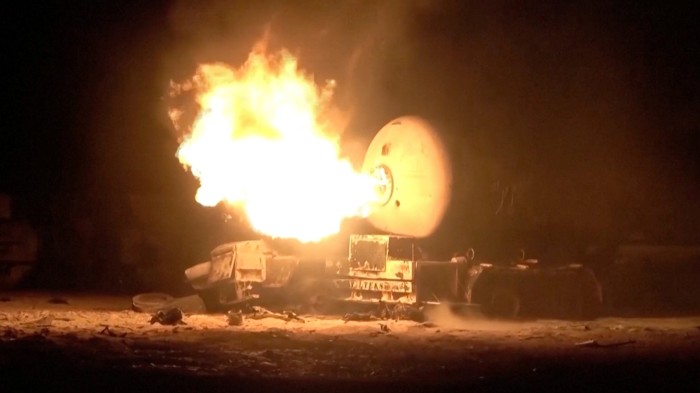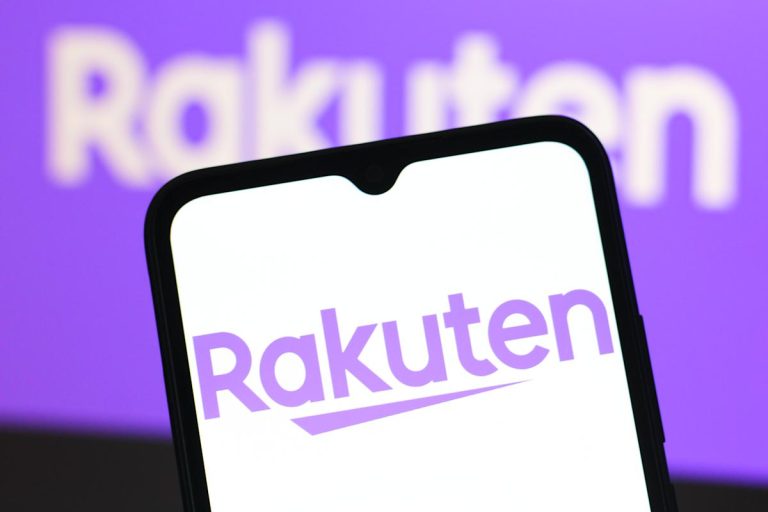Unlock the White House Watch newsletter for free
Your guide to what the 2024 US election means for Washington and the world
US air strikes targeting a Yemeni port controlled by Houthi rebels killed dozens of people, the group said on Friday, in the deadliest attack of the Trump administration’s bombing campaign against the Iranian-backed movement.
The US military said it had bombed Ras Isa fuel port to degrade “the economic source of power for the Houthis”, adding that the strikes were “not intended to harm the people of Yemen”.
But the Houthi controlled health ministry said on Friday that at least 74 people were killed and 171 were wounded in the attack. It was not possible to independently verify the claims. Centcom, the US military command for the region, did not provide its own casualty figures.
US President Donald Trump ordered intensified air strikes last month against the Houthis, which control most of Yemen’s populous north, warning that “hell will rain down upon” the rebels if they continued attacking shipping in the Red Sea.
In the weeks since, Centcom has posted frequent video clips on social media showing fighter jets taking off from the USS Harry S. Truman aircraft carrier, and saying the strike group is conducting 24/7 operations against the Houthis.
After the attack on Ras Isa, Centcom said in a post on the social media platform X: “US forces took action to eliminate this source of fuel for the Iran-backed Houthi terrorists.”
“The objective of these strikes was to degrade the economic source of power of the Houthis,” it said.
The bombing campaign — the biggest military operation of Trump’s second term — has struck targets across northern Yemen, including Sana’a, the capital, Saada province, which is the Houthi’s heartland, and Red Sea ports including Hodeida, the main transit point for goods being shipped into the north.
The Houthis began attacking ships and US naval vessels in the Red Sea and Gulf of Aden weeks after Israel launched its offensive in Gaza following Hamas’s October 7 2023 attack.
They have since launched scores of assaults on merchant vessels, severely disrupting trade through one of the world’s main maritime trade routes.
The group paused its attacks after Israel and Hamas agreed to a fragile truce and hostage exchange deal in January. But they threatened to resume assaults after the ceasefire collapsed last month, with Israel imposing a full siege on Gaza and renewing its offensive in the devastated Palestinian territory.
The Houthis have not attacked merchant shipping in the weeks since, but claimed to have launched attacks against US naval vessels and drones. The rebels have also fired missiles into Israel, including one on Friday that was intercepted by Israeli defences.
The Biden administration launched numerous strikes against the Houthis in an attempt to deter the group from attacking ships, but the rebels continued to target vessels. Israel has also launched several rounds of air strikes against the group.
After ordering the stepped-up US campaign against the Houthis last month, Trump also warned Iran would be held responsible and suffer “dire” consequences if the rebels continued to mount attacks.
The US, Israel and Gulf states accuse the Islamic republic of supplying the Houthis with increasingly sophisticated drone and missile technology, as well as intelligence.
US envoy Steve Witkoff and Iranian foreign minister Abbas Araghchi are due to hold a second round of talks over Iran’s expansive nuclear programme in Rome on Saturday.
The Houthis — which Trump designated a foreign terrorist organisation — have been one of the most active members of Iran’s so-called “axis of resistance,” a network of Iranian-backed militant groups.
They previously endured a years-long bombing campaign by a Saudi-led Arab coalition that intervened in Yemen’s civil war in 2015 to fight the Houthis and back the ousted government.
Despite the intervention of Saudi Arabia and the United Arab Emirates, the Houthis retained their grip on power and, in 2022, the UN brokered a fragile truce to the civil war as Riyadh sought to extract itself from the conflict.







